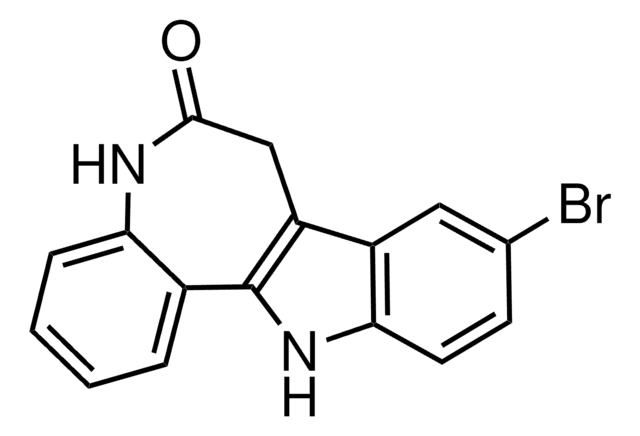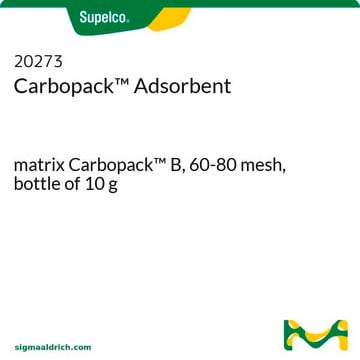S3567
SB 415286
≥98% (HPLC)
Sinónimos:
3-[(3-Chloro-4-hydroxyphenyl)amino]-4-(2-nitrophenyl)-1H-pyrrol-2,5-dione
About This Item
Productos recomendados
Análisis
≥98% (HPLC)
color
yellow to orange
solubilidad
DMSO: 5 mg/mL, clear
H2O: insoluble
emisor
GlaxoSmithKline
temp. de almacenamiento
−20°C
cadena SMILES
Oc1ccc(NC2=C(C(=O)NC2=O)c3ccccc3[N+]([O-])=O)cc1Cl
InChI
1S/C16H10ClN3O5/c17-10-7-8(5-6-12(10)21)18-14-13(15(22)19-16(14)23)9-3-1-2-4-11(9)20(24)25/h1-7,21H,(H2,18,19,22,23)
Clave InChI
PQCXVIPXISBFPN-UHFFFAOYSA-N
Información sobre el gen
human ... GSK3A(2931) , GSK3B(2932)
Aplicación
Acciones bioquímicas o fisiológicas
Características y beneficios
Información legal
Código de clase de almacenamiento
11 - Combustible Solids
Clase de riesgo para el agua (WGK)
WGK 3
Punto de inflamabilidad (°F)
Not applicable
Punto de inflamabilidad (°C)
Not applicable
Equipo de protección personal
dust mask type N95 (US), Eyeshields, Gloves
Certificados de análisis (COA)
Busque Certificados de análisis (COA) introduciendo el número de lote del producto. Los números de lote se encuentran en la etiqueta del producto después de las palabras «Lot» o «Batch»
¿Ya tiene este producto?
Encuentre la documentación para los productos que ha comprado recientemente en la Biblioteca de documentos.
Los clientes también vieron
Nuestro equipo de científicos tiene experiencia en todas las áreas de investigación: Ciencias de la vida, Ciencia de los materiales, Síntesis química, Cromatografía, Analítica y muchas otras.
Póngase en contacto con el Servicio técnico














